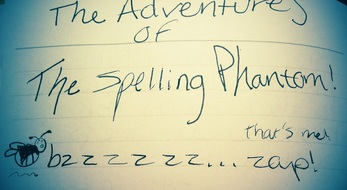Throughout my youth, I was repeatedly flouted in my attempts to express my passion for writing mechanics. A teacher, flustered, answered that she didn’t know why that comma needed to be there. My classmates liked to antagonize me by making purposeful mistakes. I called myself the Spelling Phantom and celebrated a victory when I could correct an error on a whiteboard with nobody noticing.
Primary emotions: bemusement, rage, fierce glee.
Primary activities: vigilance, vigilantism, pestering friends and loved ones.
Primary emotions: curiosity, compassion, appreciation for oddities.
Primary activities: analysis, discovery, vigorous nodding.
Realizing that there are, indeed, people who care about the same things I do was unexpectedly therapeutic. It was validation in the way that repeating a toddler’s desires back to her is therapeutic. Sometimes we just want to be heard.
I also made a few discoveries. I am not an expert in all things grammar or spelling or punctuation. I can’t always tell why a sentence feels wrong; I just know it needs to be fixed and how to fix it. (I wish everyone loved grammar diagramming as much as I do, but alas, that will never be the case.) And, most importantly, I learned how stunningly arbitrary so many “rules” actually are. That’s not to say my passion doesn’t matter—it just means that getting furious about rule breakers is misdirected energy.
I am now far less of a grammar cop than I used to be, but I am certainly not a full-fledged grammar hippie. If I were, I’d have a harder time doing my job. But being more of a hippie than a cop has saved me a lot of aggravation in recent years.
There’s a place for both cops and hippies, but I find that I’m happier on the outskirts of hippie land. And, of course, we all need to find a way to communicate with *cough* one another, because, after all, isn’t that our common goal?




 RSS Feed
RSS Feed